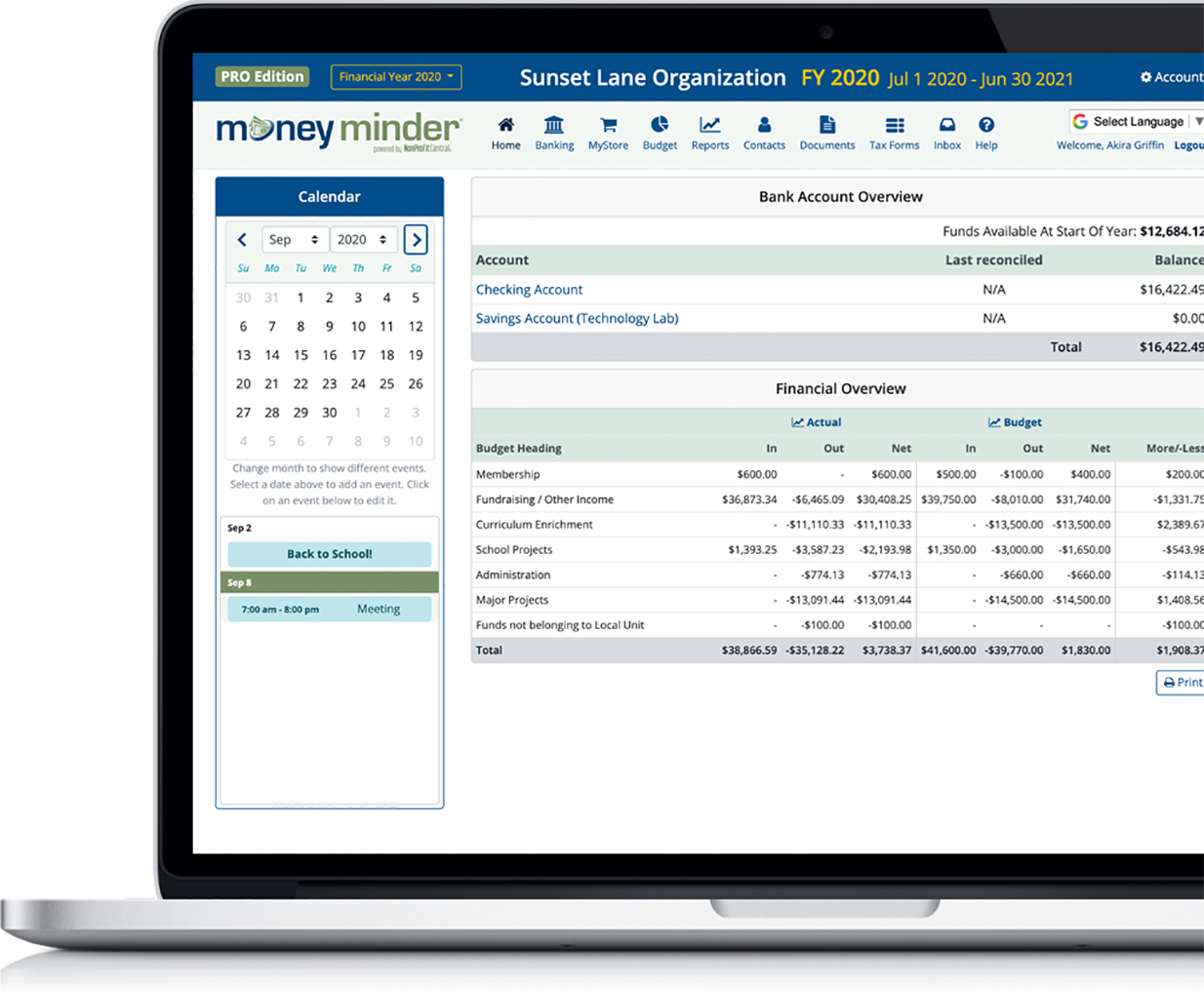- Accounting Policy For Sports Events
- Finance Jobs In Sports Industry
- Sports Accounting Firms
- Sports Booking Review
- Sports Bookmaking
- Sports Booking Stocks
For many of us in the bar business, bar bookkeeping is perhaps the most difficult part of the daily maintenance of our facilities. When we dreamed of opening a bar, few of us pictured sitting with a calculator balancing the books at 2:30 AM, tired and smelling of spilled beer and sweat. Yet bar bookkeeping is a fundamental skill necessary for the success of your bar business and at the core of effective bar management.
Keeping Track of Daily Operations
The register is the frontline of the accounting system. If you only have one register bar management is simple enough, but if you have two or more, you want to make sure that each register can be identified. At the beginning of each “cashier’s” shift, the register is given a specific amount for making change. Then every drink must be charged to the register. If you do not have a computerized system that automatically keeps track of orders you will need individual tickets. These allow you to keep track of any discrepancies at the end of the night.
If you use a ticket system for your basic bar bookkeeping, you should be aware that this will add extra time for your bar manager at the end of the night. When balances don’t match, the bar manager will have to go through the receipts to try to figure out where the problem occurred.
Computer systems tend to save time for bar management but they too sometimes need to be double checked versus receipts. (See my Point of Sale Software recommendations below.)


Sports team accountants help their organizations manage their finances. They take responsibility for recording and controlling a club’s income and expenditures and may be involved in activities. Sports industry accounting and tax professionals are feeling the pressure as new guidance put forth by the Financial Accounting Standards Board (FASB) for revenue recognition and leases takes a foothold. Phoenix Sports Partners is an investment and operating company invested in disruptive technologies, services, and platforms targeting the sports marketDuties and Responsibilities: Manages various accounting functions including ledger maintenance, accounts payable, accounts receivable, revenue and asset accounting. Smart Software For Sports League Management Your accounting and management solution for youth sports Manage your youth sports teams and leagues effortlessly with Aplos. Try it for free Try it for.
The Sales Summary of Daily Operations
At the end of each work day—(usually the following day for bars since we tend to close at 2 am most nights), the sales summary of daily operations is compiled by totaling all sales from all registers throughout the day. This sales summary gives you a running record of monthly sales throughout the entire year and is a must for bar bookkeeping tax purposes at the end of the year.
All of this information will then be further recorded in a double entry-entry bar bookkeeping system. This can either be an actual physical book, or, these days a bar bookkeeping software system that you keep on your computer, but that you back up onto a disk at least weekly to make sure that it does not get lost.
Ideally should make two disks so that even if you lose one or have one destroyed, you have another disk, at another location, so that you still have some account of your earnings.
Have a Business Bank Account Just for Your Bar
A basic bar management principle is that you keep your daily operations costs and business dealings separate from your individual dealings. For this reason another must of bar bookkeeping is to have a bank account just for your bar, which you only use to conduct the business of your bar. (You should transfer your personal money to your personal account—ideally a standard amount on the same day of the month as if you were receiving a salary. This will make sure your bar bookkeeping stays on track and regular.)
You should also make sure that you keep track of every transaction for your bar with some means of recording. If your bar manager pays for a delivery in cash out of a register, the bar manager should put in the receipt for the sale in the register so that it can be accounted for in your bar bookkeeping. For most daily operations, your bar manager should pay with your bar account checks and make sure that you keep the checks in order (so that they does not cause confusion later). In addition, you should avoid marking checks as “Cash” since this makes it difficult to categorize in your bar bookkeeping.
All written records should be kept at a secure location since you will need them not only for tax purposes at the end of the year, but also should you be audited later.
Software Recommendations for Bar Management
Accounting Policy For Sports Events
Even small dive bars these days are using computerized bar bookkeeping and bar management systems to keep track of their daily operations. These bar management systems hook right into your register and allow you manage your entire floor while at the same time printing tickets and making your life generally easier.
Of course, you could keep it completely simple and just look to keep track of things with a simple accounting program like Quickbooks, but I would advise against this tactic for your bar bookkeeping.
Here are couple of recommendations of systems that I think are adequate to the task:
- Business Plus Accounting Professional 8.2: For under a hundred dollars this is by far the cheapest platform for running your bar bookkeeping and sales on the market. It offers you basic versions of everything that you need in order to get the job done allowing you to basically keep track of all your business transaction from your computer.
- PointOS: I would recommend, however, the PointOS which is just a much fuller package, capable of growing with your bar and much better integrating with all other daily operations of your bar. I find the PointOS to be a much more user friendly system, whose interface is just much more intuitive, easy to learn, and easier to install in my opinion. It feels to me like the developers of this software really knew bars and restaurants better. The cost is four times as much as BPA Professional, but I think it is worth it in the long run.
Finance Jobs In Sports Industry
I would be happy to take recommendation about other systems bar owners have found effective.
Bar bookkeeping is not fun nor does it feel like it greatly improves the daily operations of your bar most of the time, but it is a requirement of good bar management, so even though it is hardly what we dream about, you should learn to be good at it and to realize that it is part of the price of being a professional bar manager.
Being an accountant for a major sports team, or for individual athletes, can be a wild and wooly ride, if only because you may one day have to explain to the IRS why a Rolls trimmed in leopard skin is a business expense. It's also one of the top-paying accounting jobs out there, simply because there is so much money in athletics. It's not easy to break in, but if you can, you can be set for life.
Sports Accounting Firms
What Does a Sports Accountant Do?
Sports accountants are tasked with the responsibility of doing basic accounting tasks within the organizations they are employed in. The sports industry involves many people, including the actual players, coaches, trainers, and other staff members. Unlike regular accountants, the sports accountant jobs are usually seasonal based on the seasonal schedules of whatever teams they work for.
They may have to be a lot faster and more responsive than the average accountant, and that's not a joke – they're not competing against the athletes they represent. It's because of the seasonal nature of the profession: the job requires flexibility as you may need to relocate many times in the cause of your job. But, if you have the passion to work for your favorite team or your individual clients, regardless of the many unusual demands that might be made of you, then the job may be for you.
How To Become A Sports Accountant


Getting a job as a sports accountant is not difficult if you have the right accounting credentials. There are plenty of sports teams and they all need accountants. To get an entry level job in a firm that works in sports accounting, or for the team, a bachelor's degree in accounting is the baseline. Having an MBA in Sports Management or a Master's in Accounting gives you added advantage. For those who want to work in other, more specialized positions, such as an auditor, a master's in forensic accounting is the way to go, while a master's in taxation can give you the credentials you need to keep the IRS off the team's backs. Some specializations may only require a graduate certificate in accounting.
Different Sports Accounting Positions
If you are qualified to be a sports accountant, there are plenty of positions you can apply for. They include the following;
Sports Booking Review
Payroll Accountant, Tax Accountant, or Auditor
If you choose to work as a payroll accountant for a sports team, your job will to manage the compensation process for players, coaches, and other members of staff. You will analyze the contracts for salaries of different players and employees to compensate them. You will comply with tax regulations and award bonuses to players and players who earn them.
Tax accountants for the team or individual will be responsible for making sure all taxes are filed in an orderly fashion that won't get their clients fined or jailed – and it's happened before. An internal auditor, on the other hand, makes sure everyone else is doing their jobs correctly, hunting down any errors or wrongdoing and nipping it in the bud before regulators do their thing.
Financial Controller or Comptroller
The job of a financial controller or comptroller is to oversee the accounting department of the team they are working for. They are in charge of all the sports team's accounting operations and sports finance. They have more job responsibilities than other accountants, so their salaries are higher.
Merchandise Accountant or Cost Accountant
Sports Bookmaking
Sports accountants can be in charge of the revenue earned from merchandise. Most sports teams sell a lot of merchandise online or in stadiums. A merchandise accountant of sports teams' revenue may be involved in the pricing of the merchandise and managing the stock. Meanwhile, the job of a cost accountant is keeping costs down, maximizing profits, and minimizing waste.
Sports Booking Stocks
The average salary for a sports accountant is $74,250 annually, but salaries can vary wildly based on physical location, the sports team or organization you work for, or your title and level of experience. Accountants who work privately for individual athletes, coaches, and owners, can make as much as they want to charge – and when your client has tax bills in the millions, that can be quite a lot.
